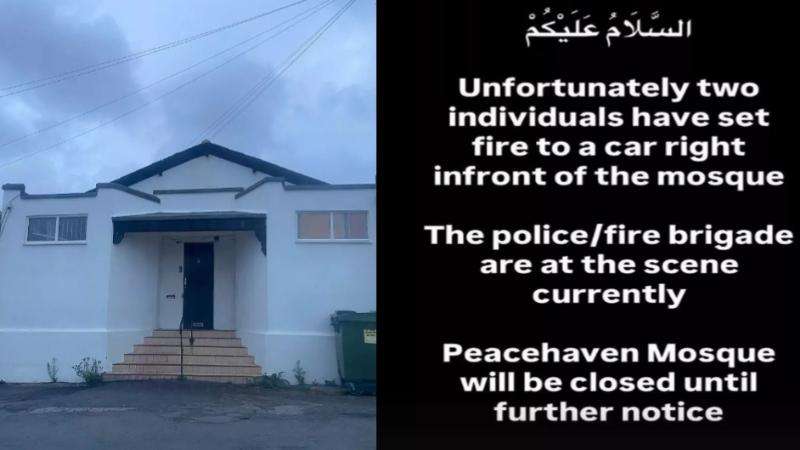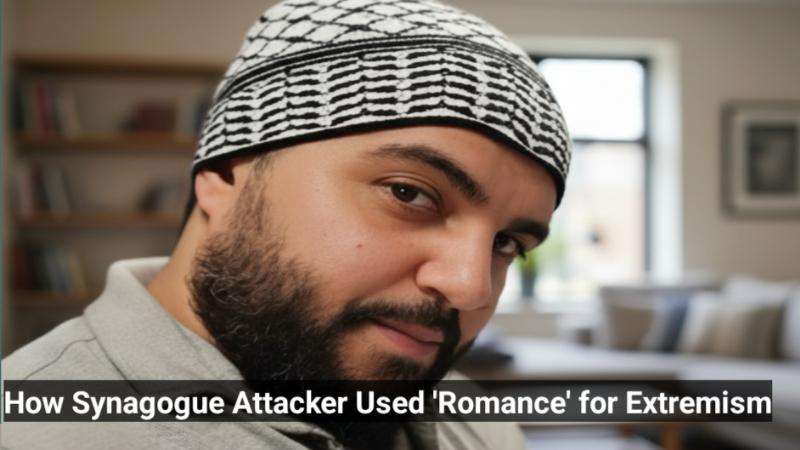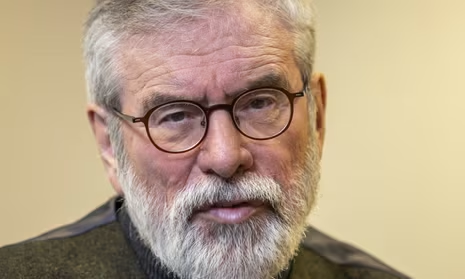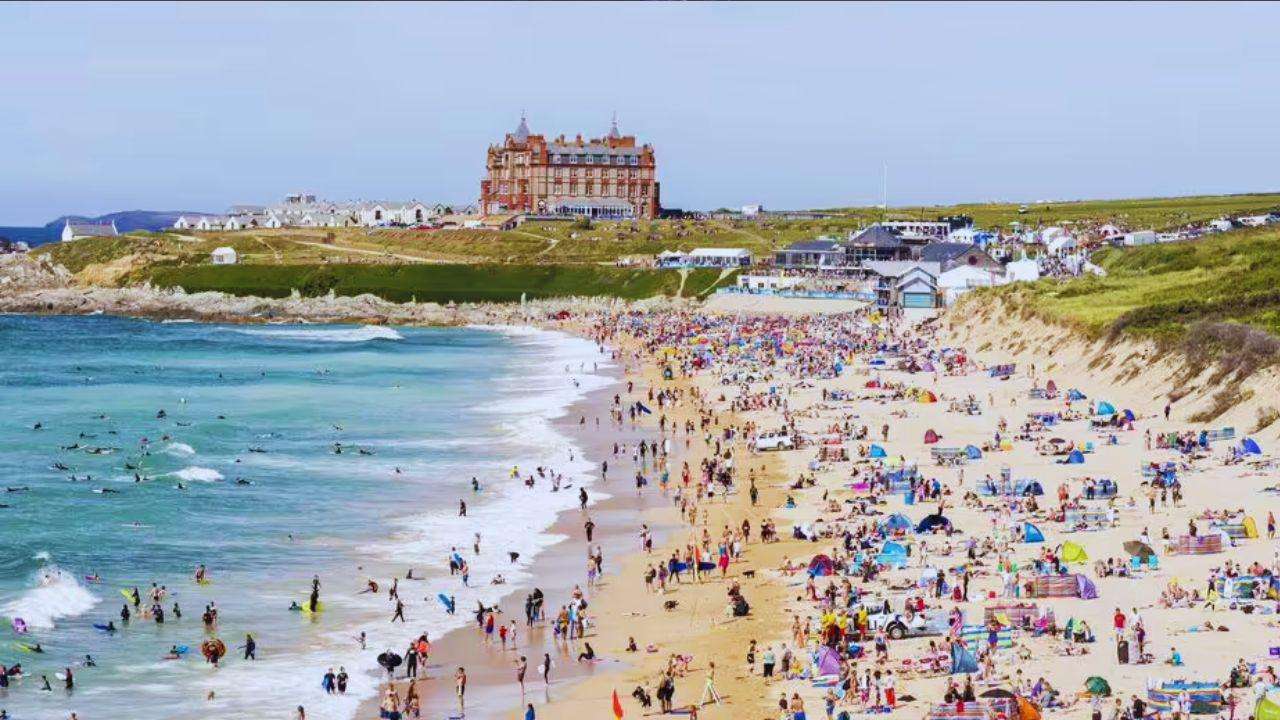The Government has declined to confirm whether Attorney General Lord Hermer was involved in the decision allowing Gerry Adams to seek compensation.
Lord Hermer, who previously represented the former Sinn Fein leader in a separate case, faces scrutiny over his role in the Government's move to repeal Troubles-era legislation that would have prevented compensation claims. Shadow Justice Secretary Robert Jenrick demanded clarity on whether Lord Hermer influenced the legal changes affecting Adams’ bid for compensation related to his 1970s detention for suspected terrorism.
Officials cited the convention of keeping law officers' advice confidential, refusing to disclose Hermer’s involvement. The decision to repeal the law followed a Northern Irish high court ruling deeming it incompatible with human rights. Northern Ireland Secretary Hilary Benn emphasized that the repeal demonstrated the Government’s strong commitment to the Human Rights Act.
Ministers have decided against appealing the high court decision despite warnings on Tuesday by 16 leading lawyers, former judges and ministers that the decision would “reopen the door to a wave of meritless litigation” relating to events dating back more than 50 years.
The 16, which includes former Labour security minister Lord West, said that hundreds of people who were lawfully detained for suspected involvement in terrorism could be paid compensation in an “unjust and wasteful use of public money”.
It is not known if Lord Hermer was involved in the decision. He represented Mr Adams in a damages claim in 2023, which was brought against the former Sinn Fein president by three victims of Provisional IRA bomb attacks at the Old Bailey, London Docklands and Arndale Centre in Manchester.
In a post on X, formerly Twitter, Mr Jenrick wrote: “The Attorney General, Lord Hermer, represented Gerry Adams in 2023. We urgently need to know whether he was involved in the decision to abandon a winnable appeal, which now leaves his former client in line for a payout.
“The Government’s claim this signals its “absolute commitment” to the Human Rights Act makes no sense whatsoever.”
Lord Wolfson KC, the Shadow Attorney General, described the actions of the Government as “… inexplicable and unexplained” and called on Parliamentarians to ask hard questions about why Parliament’s unanimous decision in 2023 to “block Gerry Adams from being paid public money” is now to be abandoned.
Asked by Tory MP Sir Ashley Fox at the Commons justice committee whether he had been involved in the decision, Lord Hermer said: “The law officers’ convention which is enshrined in the ministerial code precludes any minister from saying whether the law officers have been asked to advise on any given issue let alone what we have advised.”
The Attorney General confirmed that he had represented Mr Adams but defended the right of lawyers to represent clients “without fear or favour” and irrespective of whether what they had done “whether it was morally right or morally wrong”.
He said this was one of the “key parts of our rule of law framework,” noting that he had at the same time represented the family of a young British soldier murdered by the IRA in the 1970s.
“My concern about attacks on lawyers for doing particular cases is that it undermines faith in the legal system. I don’t want to overegg that but it has a particular resonance for me because I have been involved for many years in organisations that seek to protect lawyers working in fragile environments,” he told MPs.
“I have seen how lawyers themselves become targets including assassinations of many people known to the organisations I have worked with and supported. I have seen in most bloody terms what happens when you undermine faith in integral parts of the rule of law system.
“The idea that we have a legal system in which we have independent minded representatives representing people without fear or favour irrespective of their views is one of the great strengths of our constitutional set up.”
On Wednesday, Darren Jones, chief secretary to the Treasury, twice refused to say whether he would be comfortable with Mr Adams receiving compensation.
Asked if he was comfortable, he said: “Well, look, I don’t actually know whether that assertion by members of the House of Lords is correct or not. What I do know is that the Government inherited a scheme from the Conservative Party that didn’t have the support of anybody in Northern Ireland, that was found in many cases to be unlawful, and which actually under the Conservatives’ scheme gave immunity to people who committed appalling acts of terrorism.
“We are not taking that approach but we do have to work with partners to get a new scheme in place and Hilary Benn, the Northern Ireland Secretary, is working on that at the moment. He will consider the implications of that detail and will report to Parliament in due course.”
Asked again if he would be comfortable, he said: “As I say, I don’t know whether that’s true or not, and I’m not going to comment on hypotheticals. Hilary Benn is working with partners on the detail and he’ll present that in due course.”
Mr Adams, who has consistently denied being a member of the IRA, was detained in the Maze prison along with hundreds of others suspected of involvement in terrorism amid spiralling violence in the early 1970s.
In 2020, the Supreme Court quashed Mr Adams’s 1975 conviction for attempting to escape, on the grounds that he was not lawfully detained because his custody order had been signed by a minister other than the secretary of state. This opened the door for Mr Adams and others to claim compensation.
An amendment to the Northern Ireland Troubles Act was introduced by the Tories to block this. The former government argued that the Supreme Court was wrong in its claim that Mr Adams had been illegally detained.
Ministers said at the time that the ruling overturned a fundamental convention of UK government, known as the Carltona principle, whereby officials can exercise powers on behalf of a secretary of state.
Sections 46 and 47 of the Northern Ireland Troubles Act reversed the Supreme Court decision, preventing any compensation being paid out to Mr Adams and between 300 and 400 others. The move was backed by Labour in opposition.
However, Patrick Fitzsimmons, another Maze attempted escapee, successfully challenged the legislation in the Northern Ireland High Court, arguing that it was a breach of his human rights.
When Labour took power in July, the party abandoned any attempt to appeal the decision and laid a draft order in Parliament to repeal the relevant sections of the Northern Ireland Troubles Act.
_7.jpg)







.svg)


